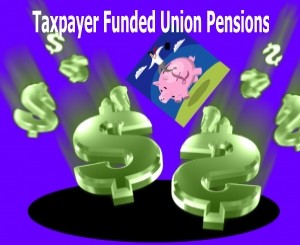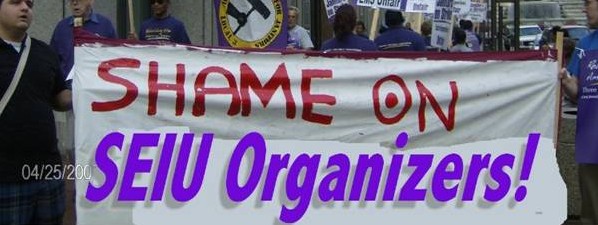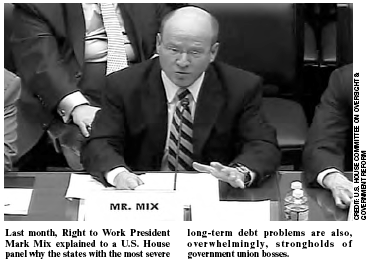Teachers Aren't 'Interchangeable' in Tennessee
Intense and persistent lobbying by the National Right to Work Committee’s Tennessee members and supporters helped convince GOP legislators and Gov. Bill Haslam (R) to prohibit union monopoly bargaining in public schools. Credit: Chattanooga (Tenn.) Times Free Press Volunteer State Teacher Union Bosses Losing Monopoly Privileges This year, Right to Work proponents have scored a series of remarkable, though still mostly very tenuous, state victories over government union kingpins. In March, Wisconsin and Ohio became the first states ever to revoke government union bosses' privilege to get workers fired for refusal to pay dues or fees to an unwanted union after previously passing a law authorizing compulsory unionism. The following month, Right to Work Oklahoma passed legislation denying government union bosses the legal power to force municipal officials to recognize them as public employees' "exclusive" bargaining agents. And now Right to Work Tennessee has achieved another milestone by effectively repealing the mislabeled "Education Professional Negotiations" Act, which authorized and promoted union monopoly-bargaining control over teachers and other K-12 public school instructional employees. Union lobbyists rammed public school monopoly bargaining through the Tennessee Legislature in 1978. Big Labor puppet Gov. Ray Blanton (D) then eagerly signed the measure. As a consequence of the Blanton law, educators in 92 Tennessee school systems, roughly two-thirds of all the districts in the state, are currently forced to accept union monopoly bargaining in order to keep their jobs. The monopoly-bargaining system, now statutorily imposed on some or all state and local government employees in 36 states, hands union officials "exclusive" power to bargain over wages, benefits, and working conditions. 'We're Putting the Entire Education System at Risk' Even public employees who choose not to join a union must work under contract terms negotiated by union bosses, or quit their jobs. Independent-minded employees are stripped of any freedom to negotiate with employers on their own behalf.






